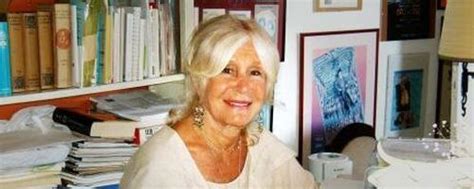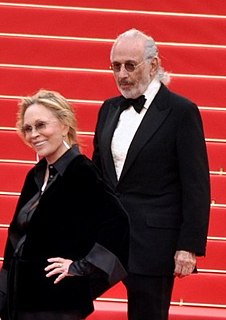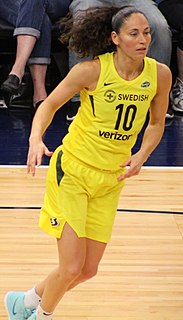A Quote by Henry Winkler
When I was a freshman at Yale, one teacher brought me up after class and said, 'You're trying to undermine my class.' And I thought to myself, 'Oh my God, I'm going to be kicked out of school on the first week.' Not only do I not have a sense of self, I don't even know what she's talking about. I don't even know how to undermine anything.
Related Quotes
It wasn't about how she looked, which was pretty, even though she was always wearing the wrong clothes and those beat-up sneakers. It wasn't about what she said in class--usually something no one else would've thought of, and if they had, something they wouldn't have dared to say. It wasn't that she was different from all the other girls at Jackson. That was obvious. It was that she made me realize how much I was just like the rest of them, even if I wanted to pretend I wasn't.
I didn't think I was good at anything, didn't do well in school. And then in the third grade, I was going to a public school. And the teacher was putting math problems on the board. And I said to myself - it's amazing how you can remember certain incidents at any age that made an impression - I asked myself why is she putting those up when the answers are obvious. And then I saw it wasn't obvious to anybody else in the class. So I said, "Hey, I'm good at something."
Children in home-school conflict situations often receive a double message from their parents: "The school is the hope for your future, listen, be good and learn" and "the school is your enemy. . . ." Children who receive the "school is the enemy" message often go after the enemy--act up, undermine the teacher, undermine the school program, or otherwise exercise their veto power.
I was never a class clown or anything like that, but I do remember being in the first grade and my teacher, Mr. Chad, told the class one day that we were going to do some exercises. He meant math exercises, but I stood up and started doing jumping jacks. To this day, I don't know what possessed me to do that, but all my friends cracked up.
I was brought up in a very naval, military, and conservative background. My father and his friends had very typical opinions of the British middle class - lower-middle class actually - after the war. My father broke into the middle class by joining the navy. I was the first member of my family ever to go to private school or even to university. So, the armed forces had been upward mobility for him.
The United States is a special case, and for me, very interesting. It's studied carefully and we know a lot about it. One of the most striking features of the elections is the class-based character of the vote. Now, class is not discussed or even measured in the United States. In fact, the word is almost obscene, except for the term "middle class." And you can't get exact class data; the census doesn't even give class data. But you can sort of see the significance of it just from income figures.
I took Alexey Brodovitch course at the New School. He taught me something that I've always remembered: After we did the initial assignment, he contradicted what he had said the first week, and I said, "Okay." The next week, he contradicted what he had said the second week. We went through 10 weeks of contradicting, and I thought maybe he was drunk. At the end, he said, "You may think I've contradicted myself, but there's no one way to do anything."
My mother was superb. Even when I said to her, when I was nineteen, oh, I'm going to India. Her immediate reaction was, oh yes dear, and when are you leaving? She didn't say, oh how could you leave me, your mother? Or wait a bit dear until you get a bit older and you know your own mind. She just said, well, when are you going? And that was because she loved me, not because she didn't love me.




































